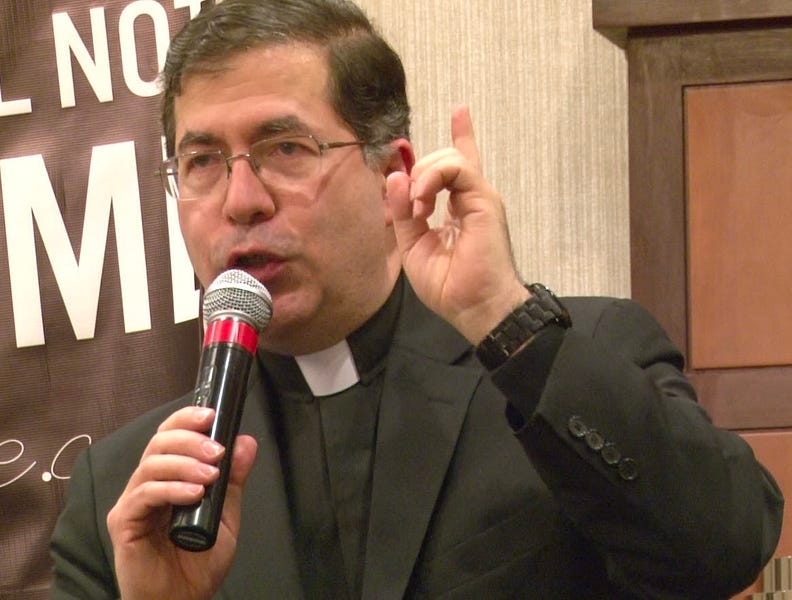I would say considerable. What is your take on John 6?
Also what is your take of the source of John’s Gospel? Is it John’s memory alone, or did he have help? There are things in his gospel that he could not possibly have known. It does appear that he received help from Our Lady in writing the gospel, as she was living with him at the time and would have been an invaluable resource.
She did not take credit out of humility but her presence plays prominently in John’s gospel.
The Eucharist is the source and summit of the Catholic faith, as Our Lord said, unless you eat the flesh of the Son of Man and drink His blood, you have no life in you.
Let me set aside the issues of Jn 6 - to the more fundamental issue of the natural vs. the supernatural, which sets the proper context for understanding Jn 6, I believe.
Thank you for this reply. There is no way I could adequately answer on a forum for "my take" on John's
Gospel - that would take more time than I have left on this earth, even if I had the writing skills to do it. I believe (and I mean "believe" in the spiritual sense, not merely as a way to say, "I think...") that John shared a spiritual intimacy with Jesus and with Mary and with their holy union, that was special - unique - among the disciples/apostles. 1) He was and is "the beloved" disciple, and 2) he and Mary were brought into a spiritual union at the Cross: "he took her into his own". More than "his own care or house or home or responsibility: "into his
own" as the Greek literally puts it.
Yes I believe she shared her recollections and impressions and most importantly, her contemplative "insights" into divine revelation, with John.
There is a meaningful relationship to be found, in Scripture, in prayer, relating the Marian "dimension" and the Johannine "dimension" - and their relation to the Petrine. John's Gospel plants seeds for understanding this, seeds that call forth the Holy Spirit for light, and clarity.
Finally, and relevant to my post here on the matter of the supernatural contrasted to the natural, in the religious life of human persons: the matter of "believing" itself is a significant part of John's Gospel. The synoptics present the noun "faith" most often; John, the verb "to believe." John - and the Spirit leading him in his recording of his Gospel - John sought to
supplement the synoptics (maybe "mend" better than "correct" - we note John and his brother were "mending" their nets when hearing their vocation to "follow") in this crucial matter of faith/believing.
And more than "believing
in", John explicitly uses the Greek "
eis" - "into". John uses the verbial phrase "believe into" in revealing ways, to point us to the
active life of
believing into Jesus and His eternal Truth.
The
act (in the Greek) "
pisteuein eis" - believe
into - describes an interior/spiritual
translation, so to speak, from outside something (the Spirit/Life of Jesus) to inside - inside His Being, so to speak. This is a spiritual "movement" from the natural to the supernatural - a work of God received, embraced - a "yes!" - an "Amen" - in the soul of a human person. This, Jesus described to Nicodemus in Jn 3, contrasting flesh and Spirit.
So in earlier posts I began to speak of this crucial spiritual necessity - necessary to be first received in potency (in the virtues of faith, hope and charity), and crucially important to be made
act by virtue of actual graces sought and received, living and active - "believing into". John is brilliantly luminous on this point, if we dwell on and in his Gospel rightly.

